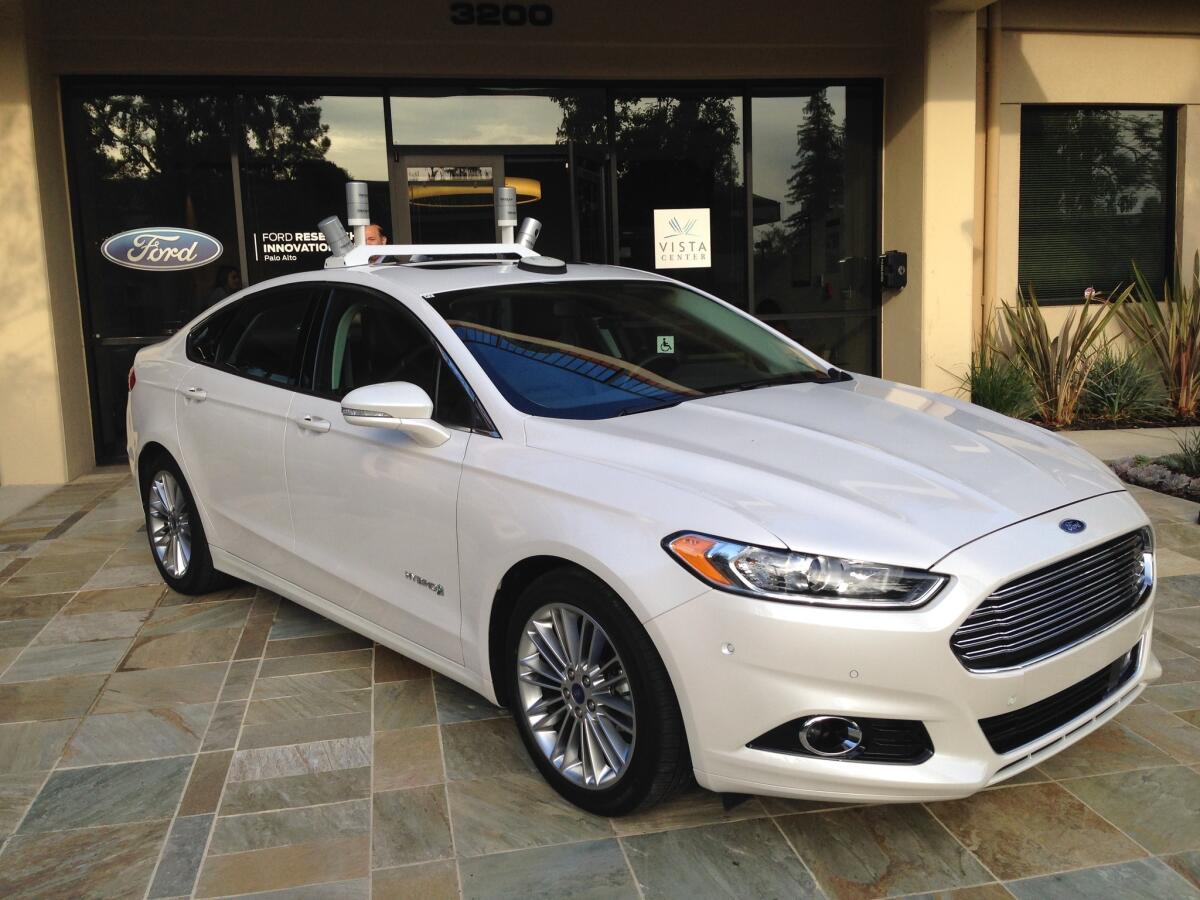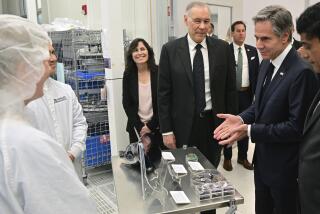Ford opens research center in Silicon Valley

- Share via
Reporting from Palo Alto — Ford Motor Co. opened a research center in Palo Alto on Thursday where its engineers will work on autonomous and remotely piloted vehicle development as well as other advanced automotive technologies.
By year’s end the center will employ about 125 researchers, engineers and scientists, Ford said, and will be among the largest automotive research facilities in Silicon Valley.
Technology centers established by automakers have played key roles in the development of self-driving vehicles, automotive communications and smartphone integration. BMW, Volkswagen, Nissan and Toyota are among the companies that already have research centers in Silicon Valley.
“This new research center shows Ford’s commitment to be part of the Silicon Valley innovation ecosystem — anticipating customers’ wants and needs, especially on connectivity, mobility and autonomous vehicles,” said Mark Fields, Ford’s chief executive.
Dragos Maciuca, an engineer formerly with Apple Inc., will lead Ford’s Silicon Valley team.
Ford also announced that it would provide Stanford University’s engineering department with a Fusion hybrid autonomous vehicle to begin testing the path planning-and-prediction algorithms that automotive researchers have developed over the last year.
The automaker’s Palo Alto team also is using gaming software called aDRIVE to test algorithms such as traffic sign recognition as it prepares for on-road testing of self-driving vehicles.
In another endeavor, Ford is testing a system that allows researchers to remotely drive electric golf carts located at the Georgia Institute of Technology’s campus in Atlanta.
“Future mobility solutions will require fresh ideas and vigorous collaboration between researchers inside Ford and with other technology leaders outside the automotive industry,” said Raj Nair, Ford’s global product development chief. “Our Palo Alto research team will build on existing relationships with universities and technology companies, and forge new ones to help us create and apply the appropriate technology working together.”







